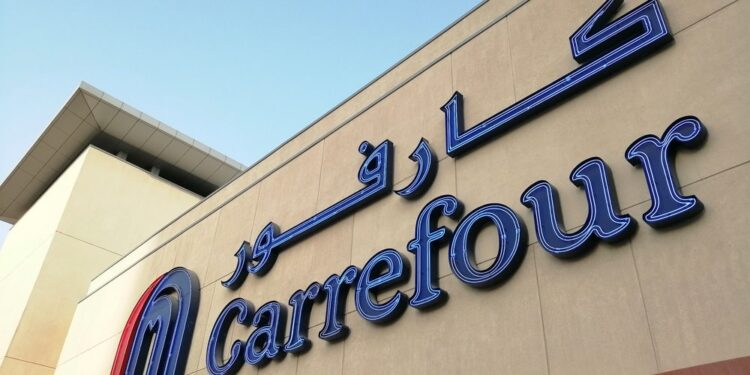The Kuwaitian subsidiary of the French distribution giant announced, Tuesday, September 16, 2025, the cessation of its activities in Kuwait, thanking its customers for their loyalty. This departure is part of a series of regional withdrawals, after Jordan (November 2024), Oman (January 2025) and Bahrain (September 14, 2025).
The Majid Al Futtaim (MAF) group, holder of the exclusive operating rights of Carrefour since 1995 in twelve countries of the Middle East, Africa and Asia, recorded an 11% drop in turnover in the first half of 2024 (2.66 billion euros) and a fall of 47% of its Ebitda (63.9 million euros).
The group explains this decline by “the drop in consumer confidence following geopolitical conflicts in the region”. Like Starbucks in Malaysia, Carrefour pays the consequences of the boycott linked to a perception of complicity with Israel.
To ensure the continuity of its activities, MAF launched its new Hypermax brand in Kuwait, already inaugurated in Jordan in November 2024 during the withdrawal of Carrefour. Out of a total of around 390 stores under Carrefour license, 56 were rebranded in Hypermax in less than a year, or almost 14% of the regional park.
Wednesday morning, the official sites of Carrefour Kuwait and Bahrain were no longer accessible, symbolizing the end of the Carrefour era in these countries and illustrating the concrete impact of the boycott on the multinationals present in the Middle East.
The boycott, an economic and political weapon
Since October 2023, the war in Gaza has sparked a wave of boycott against multinationals accused of supporting Israel. In Tunisia as in the Middle East, brands such as KFC, Coca-Cola or Carrefour undergo consumers’ pressure.
Social networks, notably Tiktok and Instagram, massively relay the hashtag #boycottcarrefour, which has millions of views and testifies to the magnitude of the movement. Videos of deserted alleys are increasing. In Tunisia, a store in La Marsa was even the scene of an event calling for boycott.
This constant pressure directly affects commercial performance: supermarkets find a drop in sales, while international channel restaurants see their attendance fall. Experts point out that this boycott has become a form of economic and political resistance, sustainable and structured, which obliges multinationals to adapt their strategies in the region.
In Tunisia, the boycott exceeds the act of purchase and results in demonstrations in stores and campaigns on social networks. The impact on the image of companies is such that certain points of sale envisage sales or closures, illustrating the concrete and symbolic scope of this citizen movement.








